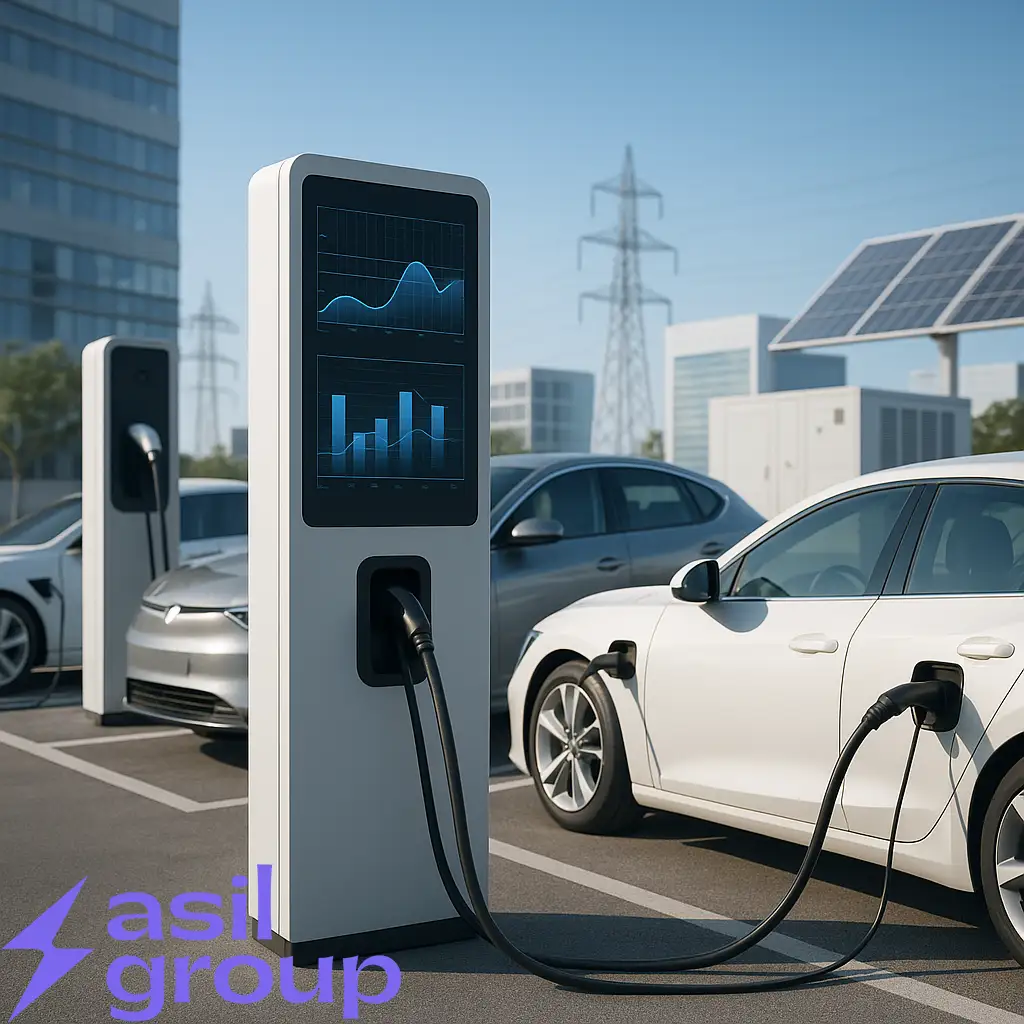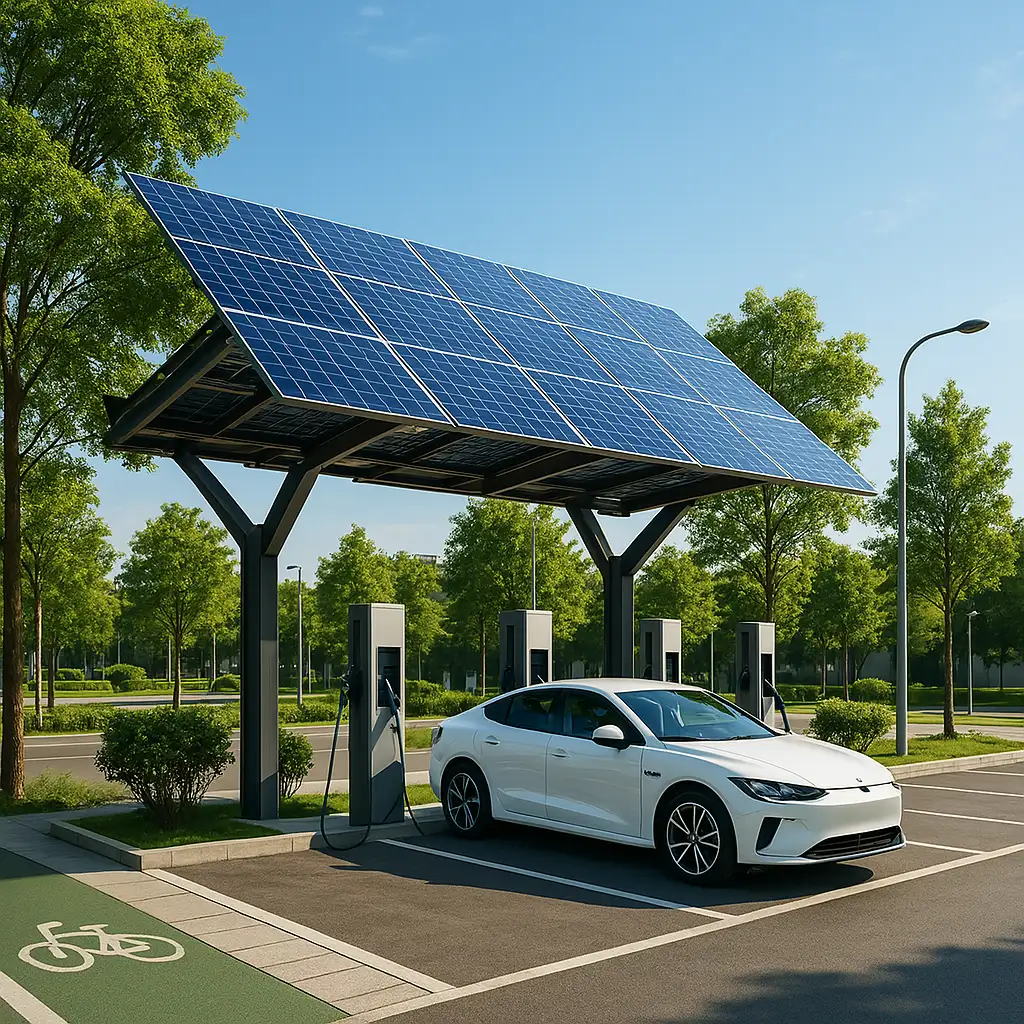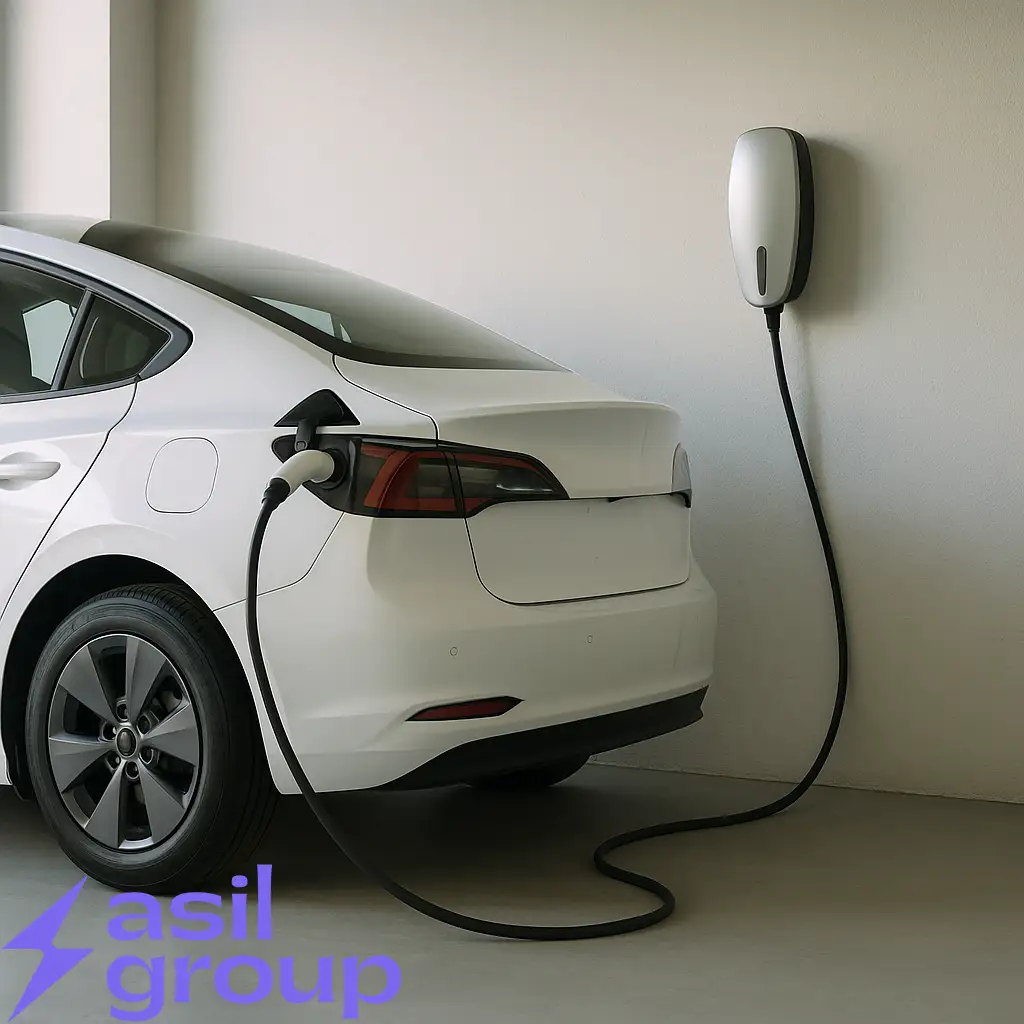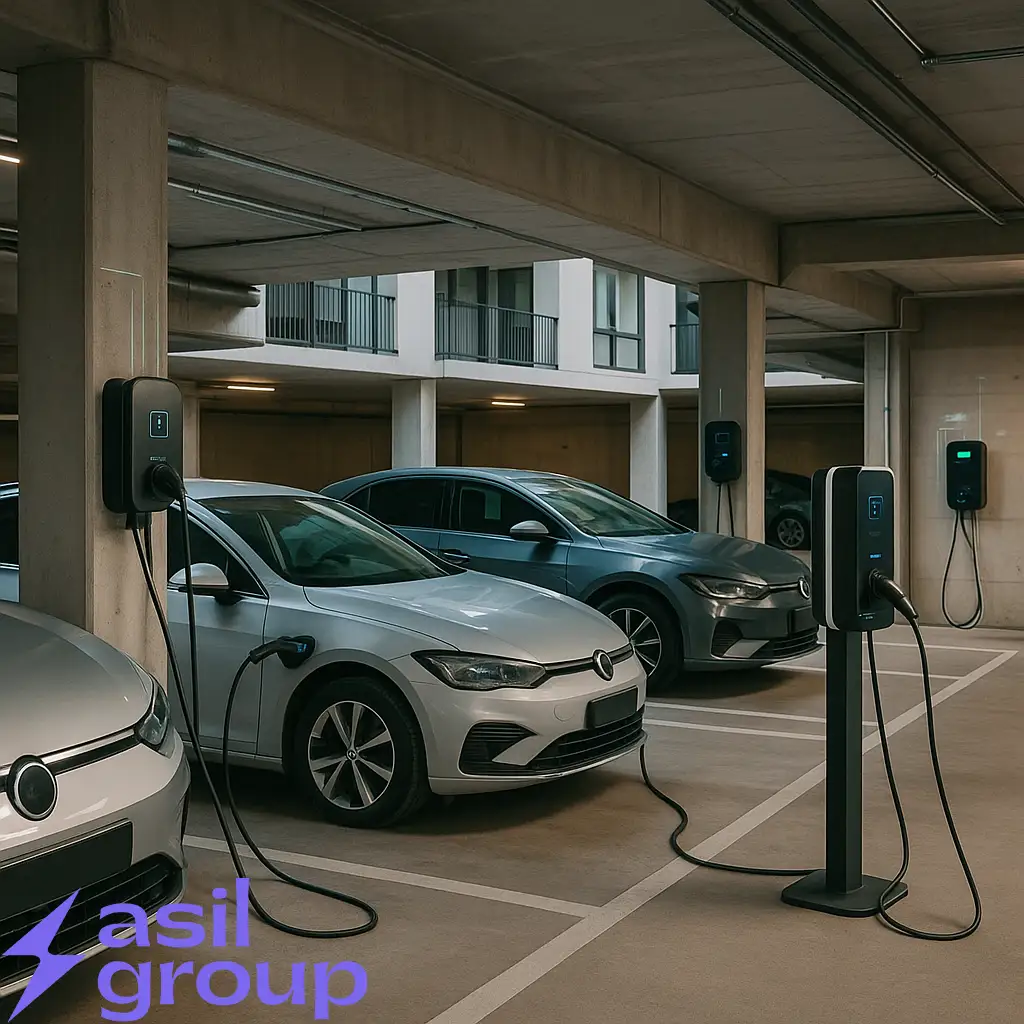
Smart Load Management in EV Charging Networks
Back to all posts As electric vehicle (EV) adoption accelerates globally,

As the demand for electric vehicles (EVs) continues to grow, integrating solar-powered EV charging stations is emerging as a key solution for building a greener, more sustainable future. Combining solar energy with EV infrastructure helps reduce carbon emissions, lower electricity costs, and promote clean mobility. This article explores the benefits, technologies, challenges, and future of solar EV charging solutions, making it a must-read for businesses, municipalities, and eco-conscious individuals.
Solar-powered EV charging stations use photovoltaic (PV) panels to capture sunlight and convert it into electricity to charge electric vehicles. These systems can function as on-grid, off-grid, or hybrid models that integrate with energy storage systems and traditional power grids. They are ideal for public charging stations, residential areas, public parking lots, and highway rest stops.
Solar-powered stations generate clean energy, reducing reliance on fossil fuels. They significantly cut greenhouse gas emissions, supporting the global push for net-zero carbon.
After the initial installation, solar EV chargers have minimal operational costs. Free sunlight helps reduce electricity bills, offering long-term savings for both individuals and businesses.
Off-grid or hybrid solar charging stations can operate independently of the central grid. This improves energy security, especially in remote or disaster-prone areas.
Solar-powered stations with battery storage can store excess energy and feed it back into the grid during peak hours, stabilizing energy demand and supply.
Installing solar EV charging stations adds modern, eco-friendly appeal to commercial and residential properties, increasing their market value.
Photovoltaic (PV) Panels: Capture solar energy and convert it to electricity.
Inverters: Convert direct current (DC) from solar panels to alternating current (AC) used by most EVs.
Battery Energy Storage Systems (BESS): Store unused solar energy for later use, including night-time or cloudy conditions.
Smart Charging Management Systems: Optimize charging times, load balancing, and energy distribution using AI and IoT technologies.
Residential Solar EV Chargers: Installed in homes or apartment complexes, offering convenient, cost-effective charging.
Commercial and Retail Locations: Malls, offices, and hotels attract eco-conscious customers and employees.
Public Transit and Fleets: Solar charging can support electric buses and delivery vehicles with sustainable energy.
Highway Charging Stops: Roadside stations equipped with solar can provide fast, renewable charging to long-distance travelers.
While solar EV charging has long-term savings, the initial cost of panels, batteries, and installation can be a barrier. Incentives, rebates, and government grants can help offset these costs.
Solar efficiency drops during cloudy or rainy days. Hybrid systems with grid connectivity and energy storage help maintain consistent performance.
Installing PV systems requires adequate space, which can be an issue in urban areas. Canopy-based chargers and parking-lot installations optimize available space.
The future of solar EV charging infrastructure is closely tied to smart city development. Emerging trends include:
Wireless solar charging integrated into roads.
Vehicle-to-grid (V2G) systems for bidirectional energy flow.
AI-powered energy forecasting to maximize solar utilization.
Government policies and private investment are expected to drive the widespread adoption of solar-powered EV chargers, supporting the shift toward a clean transportation future.
Integrating solar energy into EV charging infrastructure is a smart, scalable, and sustainable solution. Solar-powered EV charging stations not only reduce environmental impact but also offer long-term economic benefits. As technology advances, this model will become a cornerstone of green mobility and energy-efficient cities.
Companies like Asil Group are at the forefront of implementing solar-based EV charging systems, offering innovative solutions that align with both energy goals and environmental responsibility.

Back to all posts As electric vehicle (EV) adoption accelerates globally,

Back to all posts As electric vehicles (EVs) become more popular,

Back to all posts As electric vehicles (EVs) become more common,

Back to all posts As electric vehicle (EV) adoption accelerates globally,

Back to all posts As electric vehicles (EVs) become more popular,
Asil Group offers cost-effective and eco-friendly EV transportation solutions. We focus on convenience with AC chargers, DC fast chargers, and Wallbox chargers, serving premium locations and enhancing quality of life with smart, sustainable EV charging.
Asil Group offers cost-effective and eco-friendly EV transportation solutions. We focus on convenience with AC chargers, DC fast chargers, and Wallbox chargers, serving premium locations and enhancing quality of life with smart, sustainable EV charging.
Asil Group offers cost-effective and eco-friendly EV transportation solutions. We focus on convenience with AC chargers, DC fast chargers, and Wallbox chargers, serving premium locations and enhancing quality of life with smart, sustainable EV charging.
Phone: +98 21 22221422
Email: [email protected]